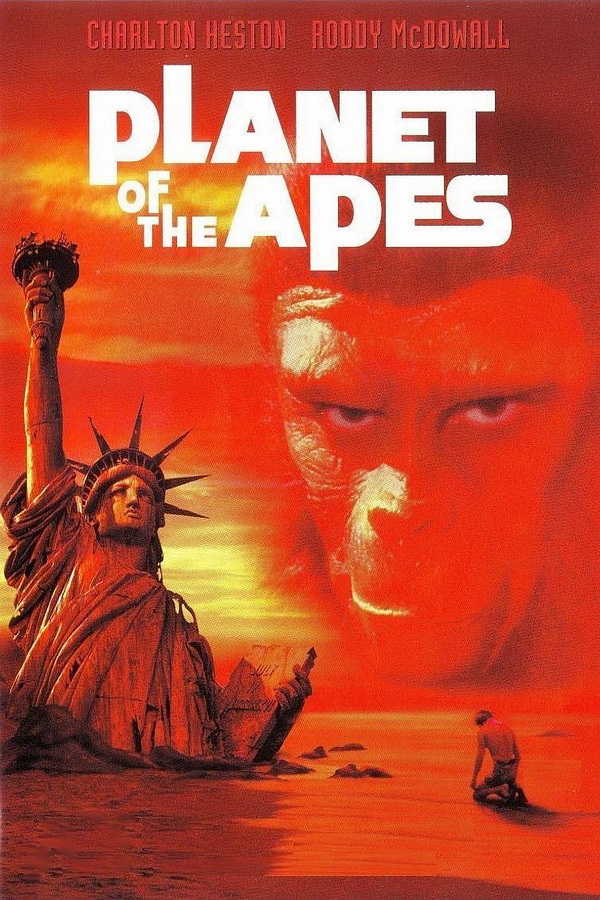
Sometimes you just gotta go back to the original. Having only watched the 2 most recent versions of the Planet of the Apes film franchise, I convinced myself that I had an adequate knowledge of this particular cinematic story. I was wrong of course, because I finally watched 1968's "Planet of the Apes" and it's truly a great film that is the essential adaptation of the story. I had avoided it for quite some time, expecting a cheesy old-fashioned trifle, but this was far from that. From the first scene I knew that this would be a respectable film. It gets right to the point and sets the stage for the riveting film to come.
The plot begins with a crash landing of a trio of men (lead by Charlton Heston) on a mysterious planet. Unbeknownst to them, this planet is actually earth, but not the one that they left behind upon their space exploration. The planet has been taken over by evolved apes, in an alternate reality where humans are now at the bottom of the hierarchy of living creatures. While the apes have become civilized and possess the ability to talk, the men are somehow mute and exhibit primitive behaviour. Admittedly this peculiar transition of mankind isn't convincingly explained, but it's a fascinating concept. The tables have turned and we are mistreated similarly to the way that we currently deal with caged animals.
As the lead actor, Charlton Heston is the perfect surrogate for the audience, as he somewhat fights for the rights of all of us as human beings. He gives a very strong performance, once again proving that he is one of the most capable leading men to ever grace the screen. As he endures the challenges of overcoming the ruling apes, the film delivers the best elements of almost every genre. Using kinetic camerawork with stunning images, this is an exciting action-adventure, drama, science fiction, mystery, horror, thriller and fantasy film all wrapped into a well-made package.
Of course, there are certain aspects of the film that feel quite old-fashioned. The music and sound effects are particularly dated (it can be quite overbearing at times) and the ape makeup is slightly comical in its design. These are just minor flaws though, as it doesn't detract from the compelling story.
This compelling story is the key to the timeless nature of this film. Many may come to this film for the fun action elements, but what truly stands out are the rich themes that it digs into. One of the most curious plot elements is the social context of this ape world. Despite superseding the previous advanced human civilization (the film is set in the year 3978), they are surprisingly stuck in an ancient pre-Enlightenment way of thinking. The leaders emphasize the importance of the religion, based on their sacred "scrolls" and reject the scientific evidence of human intelligence that Heston's character clearly provides. This medieval "science vs religion" debate clearly hinders progress and it's amusing to see it reemerge in a future reincarnation of civilization. In a way, this intentional impeded progress almost seems like a deliberate ego boost to us as a species, as the apes seemed unable to replicate our "success". They have yet to develop advanced forms of technology, most notably with their lack of modern methods of transportation. However, this idea of man's evolutionary "success" lays the foundation for a rather brilliant ending to the film. In a great bit of philosophizing, the central ape leader reminds us of the catastrophic effects of our destructive behaviour. Fueled by greed and selfishness, we have used our technological power to cause immense harm.
As a result, the film concludes as a profound cautionary tale that really gets you thinking about how we interact with each other and the natural world in general. Even 45 years later, this message is very relevant (even more so) and it comes through clearly without being too preachy. For this reason and more, it's easy to see why "Planet of the Apes" is such a revered classic.


















